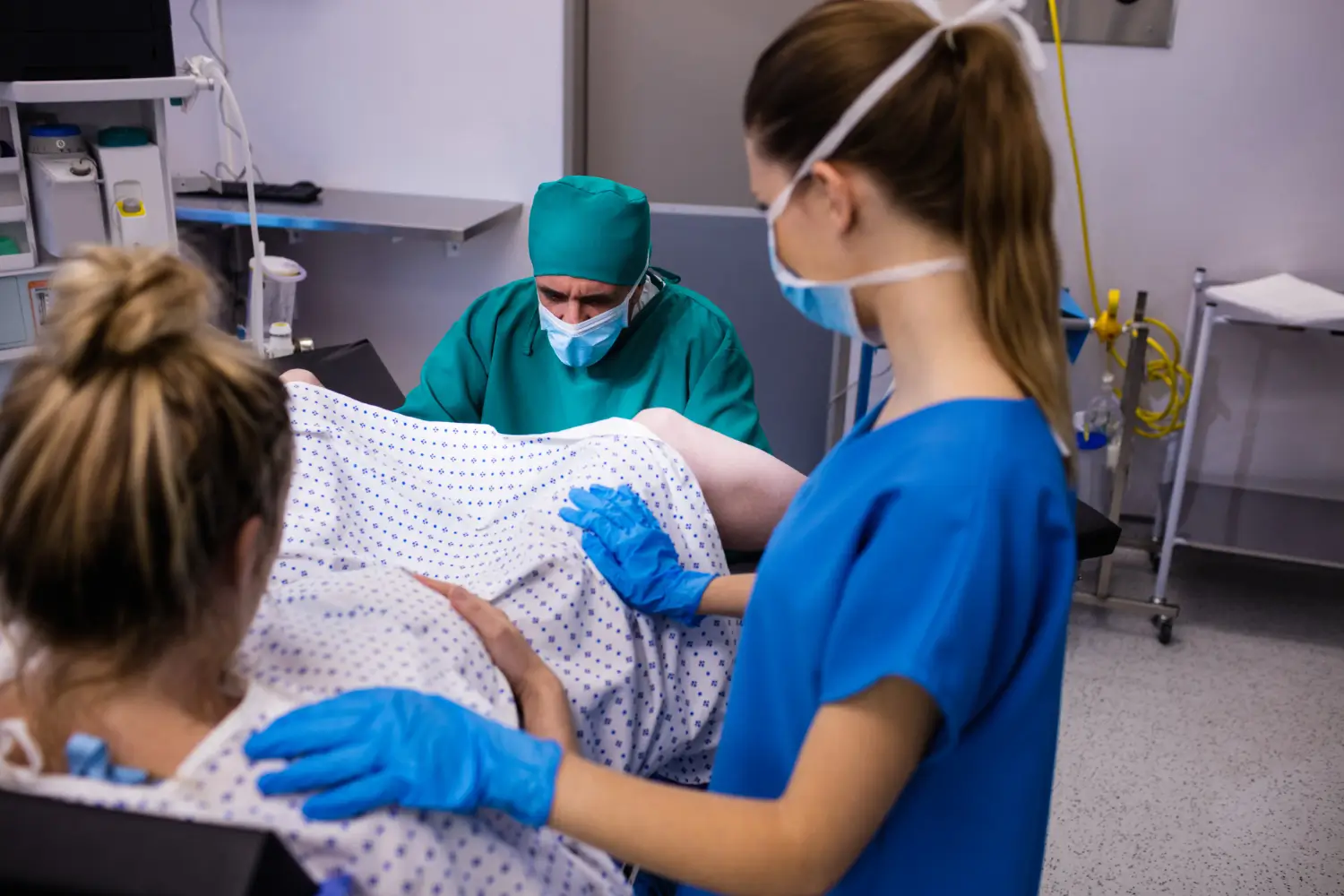Donor embryo transfer is a fast-evolving fertility treatment in India, providing new hope for singles and childless couples who are unable to conceive with their own sperm or eggs. The procedure involves the use of embryos that are generated with donor sperm and donor eggs, commonly donated by people who have finished having kids or by couples who have tried IVF and donated excess embryos.
India, being the world leader in high-tech fertility treatments at comparatively lower prices, has also emerged as one of the favorite destinations for donor embryo success rates. Donor embryo success in India keeps on increasing with the latest technology, highly experienced professionals, and very good medical protocols. Indian agencies such as Indian Egg Donors, one of the most popular egg donor agencies in India, make the whole process very smooth for Indian as well as foreign intended parents.
Here’s a comprehensive step-by-step guide to how donor embryo transfer works in India.
1. Initial Consultation and Medical Review
It all starts with an initial consultation at a fertility clinic or agency. Here, the intended parent(s) give their medical history, history of previous fertility treatment (if any), and donor preference. Thorough medical evaluation is performed to condition the recipient physically and hormonally for embryo transfer.
The most common practice relied on agencies like Indian Egg Donors, a very experienced egg donation agency at this point, as such agencies provide individualized counseling and assist in matching individuals with suitable fertility clinics in India. This is the first step towards hassle-free and a joyful treatment experience.
2. Choosing Donor Embryos
Donor embryos are acquired either from:
- Anonymous donors (where egg and sperm donors are not known to recipients),
- Or embryos donated by IVF couples who no longer require their stored embryos.
The choice is usually decided based on genetic compatibility, medical history, and, in some cases, ethnic or physical factors. In India, strict regulations are observed so that all donors are thoroughly screened, ranging from genetic screening, infectious disease screening, to psychological screening.
Companies such as Indian Egg Donors provide access to a huge pool of donors, hence making intended parents capable of accessing the resources they require in an effort to make informed decisions. This step is crucial in maximizing the donor embryo’s success rate and guaranteeing a successful pregnancy outcome.
3. Legal and Ethical Formalities
Even though donor anonymity is preserved as under Indian law, signatory formalities in the form of documents and consent forms are made compulsory with the recipients. These documents parental rights transfer and provide complete compliance with Indian Assisted Reproductive Technology (ART) legislation.
If the parents who plan to have a child are from another country, they should make sure that they comply with their home country’s laws after donor embryo transfer. Guidance from an aware egg donor agency in India is particularly useful in such cases.
Firms like Indian Egg Donors assist you with documentation, and hence, the legal process is smooth and regulatory in national and international law.
4. Synchronization of Menstrual Cycle
After the donor embryo has been chosen and legal documents for the treatment have been released, the menstrual cycle of the recipient is synchronized with the calendar of transfer. The recipient is given hormonal drugs such as estrogen and progesterone to prepare the uterine lining (endometrium) for implantation.
Ultrasounds and blood tests are done during this time to check endometrial thickness so that the uterus is optimally prepared to receive the embryo. Good synchronizing of the cycle results in a high IVF success rate in India and also in treatment overall.
5. Thawing of Frozen Embryos
The majority of the donor embryos utilized in India are cryopreserved and stored in accredited fertility clinics. On the day of the scheduled transfer of the embryo, the chosen embryos are thawed with caution to maintain their viability by embryologists.
Methods of cryopreservation applied by egg donation in India are very advanced, leading to enhanced transfer rates and survival of embryos. This is imperative in ensuring a high IVF success rate in India.
6. Embryo Transfer Procedure
Implantation of the embryo is a brief, painless, and relatively uncomplicated outpatient procedure that lasts around 10–15 minutes. A soft catheter is inserted via the cervix, and one or two embryos are simply pipetted directly into the uterine cavity under the guidance of the ultrasound.
No overall anesthetic is needed, and the majority of women are able to resume light activity within a day, but rest immediately after treatment is advised. This treatment, under the banner of professional fertility experts and under the supervision of a reputable egg donation agency, is essential to the success of the treatment as a whole.
7. Post-Transfer Care and Support
Once the embryo transfer, the recipients are maintained on progesterone and other support medications for about two weeks to ensure implantation. There is also a need for psychological and emotional support at this time, and counseling facilities are provided by the majority of clinics.
Organizations like Indian Egg Donors give round-the-clock care and counseling throughout this time, keeping you informed and psychologically motivated. Some of them also give advice to become an egg donor in India and help increase the donor bank for the next generation.
8. Pregnancy Testing and Follow-Up
Blood work (beta hCG) is done approximately 10–14 days from the time of transfer to ascertain pregnancy. After a positive result, follow-up ultrasounds are conducted to verify heartbeat and fetal growth.
Upon failure, the process can be tried by patients who have any remaining embryos. Assistance from a credible agency should aid intended parents in determining their next course of action while providing other opportunities to become an egg donor in India to facilitate embryo supply.
Conclusion
Donor embryo transfer procedure in India is a well-checked and organized fertility process that has brought hope to millions of people, single parents, and the LGBTQ+ community across the globe.
Due to stringent medical standards, ethical standards, and growing availability of donors through egg donation in India, success rates have been improving.
Indian Egg Donors play a crucial role in making the entire process a cakewalk, right from embryo selection to legality and counseling about the emotional aspects, so that the process is smooth, ethical, and effective for all concerned.
Donor embryo transfer is not merely a medical process—it’s a second chance at having a family for most would-be parents.
Frequently Asked Questions:-
Q. What is donor embryo transfer?
Ans : Donor embryo transfer is an infertility treatment where embryos developed by using donated eggs and sperm are inserted into the uterus of a recipient to be fertilized. It is usually contemplated by couples who have previously undergone failed IVF treatment, and success depends on the donor embryo’s success rate.
Q. Who can consider donor embryos in India?
Ans : Single women, single men, infertile couples, and lesbians and gay men are all able to make use of donor embryo transfer as a means of having children of their own. Most patients who would like to go ahead with egg donation in India also make use of donor embryos as an option to follow through, and they are cheaper.
Q.Is the embryo transfer procedure painful?
Ans : No, embryo transfer is a simple and painless minor operation and is not done under anesthesia. Getting the right egg donor agency in India can guarantee the procedure is done without a hitch and with professional care.
Q. How are donor embryos selected?
Ans : Embryos are selected on medical history, genetic health, and otherwise, as per preference. Agencies like Indian Egg Donors, a reputable egg donation agency, assist you in determining your compatible donors who undergo all the required screening and compatibility tests.
Q. How long does it take to know if the embryo transfer worked?
Ans : One undergoes a pregnancy blood test (beta hCG) 10–14 days after transfer to check if implantation was successful or not. In the process, the majority of individuals who become egg donors in India assist in increasing the chances for families in treatment and assist in increasing the IVF success rate in India.

Dr. Veera Saghar
As an Egg Donor Coordinator, she plays a critical role in our company. Her background as a medical graduate from ISRA UNIVERSITY in Pakistan provides us with a solid foundation in the medical sciences. She has seven years of clinical experience practicing in the USA. This has given her firsthand experience when collaborating with patients and their families.
She is responsible for managing the process of egg donation from start to finish. We identify and screen potential egg donors.










